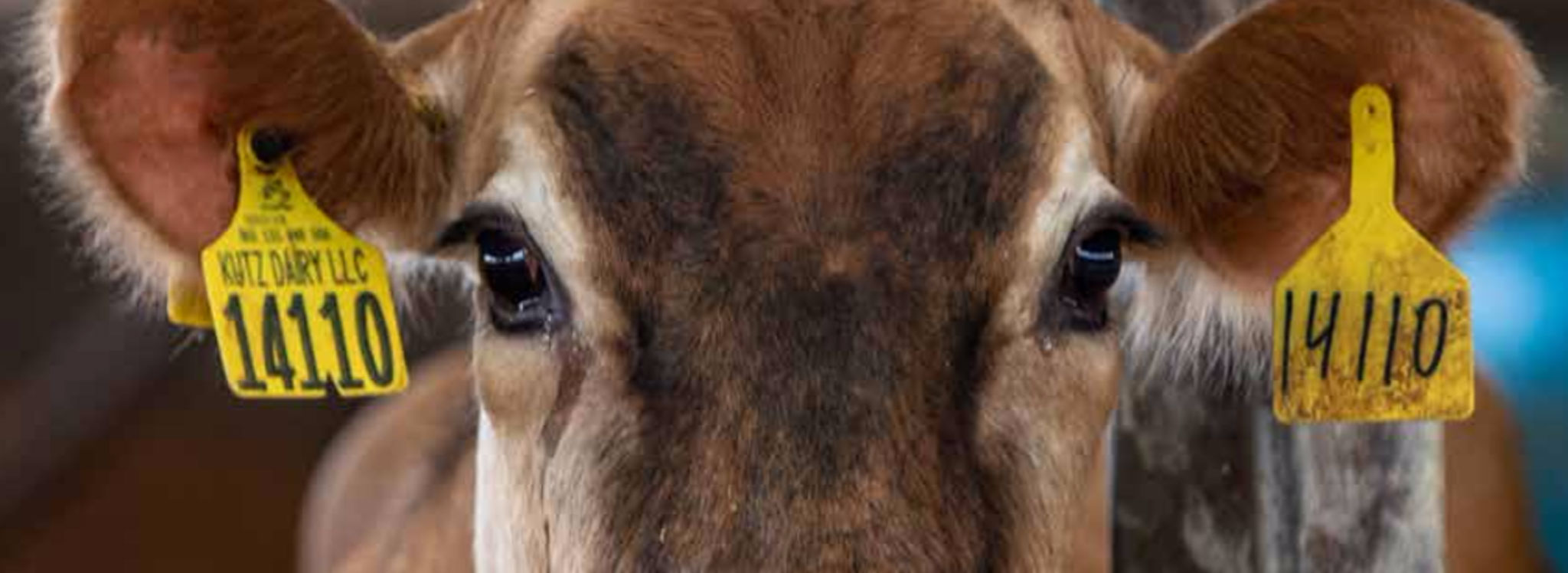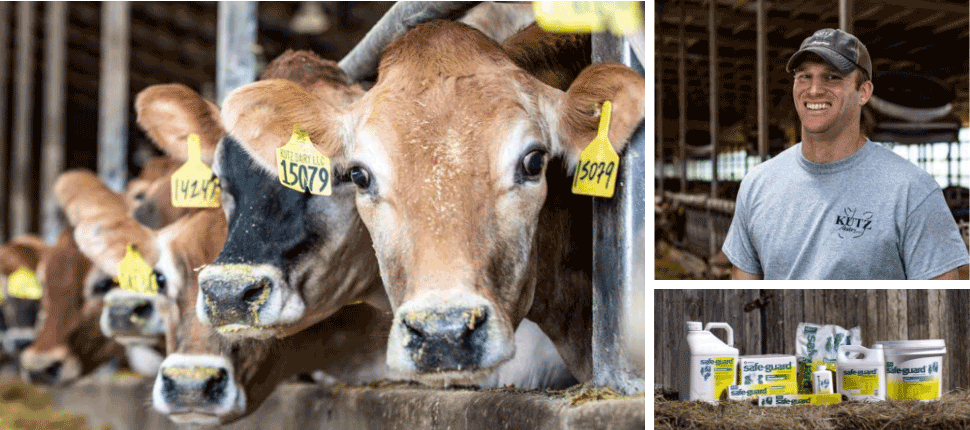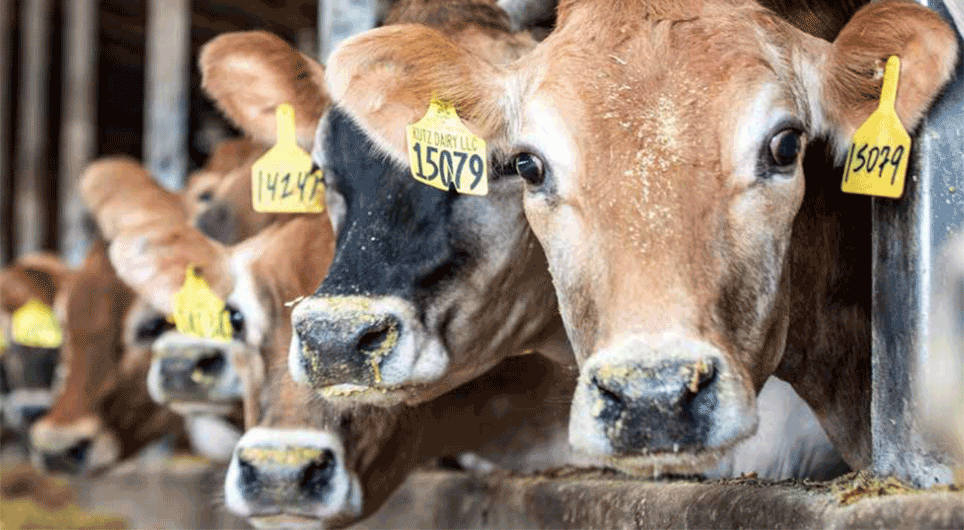
Balanced Approach
When performance counts, dairy producers can count on SAFE-GUARD® (fenbendazole) cattle dewormer.
There’s a careful balance at Kutz Dairy. Allan Kutz explains as he stands in the aisle of his family’s dairy barn, flanked by mirrored rows of Jersey cows enjoying their morning ration.
Nutrition, animal health, production. All weigh heavily — and in harmony — for the success of the Wisconsin operation, located about 50 miles west of Milwaukee.
“We give them a well-balanced diet, so they produce wholesome, nutritious milk,” Kutz says. “Our goal is to produce high-quality milk for the consumer, and do it in an efficient way that is good for the environment and sustainable for the future.”
Feeding a mixture of corn silage, concentrates and other forages, feed costs are one of the largest expenses for a dairy — and one of the most important. Quality nutrition is essential for cows to produce a high-quality product for consumers.
And it adds up to about 60 pounds of feed per animal, per day.
“Being able to utilize every pound of feed as efficiently as possible to create a pound of milk is what affects our bottom line,” Kutz says.
A legacy of efficiency and doing things right at Kutz Dairy LLC were started by Allan’s parents, Ron and Pam, in 1973. Today, the farm near Jefferson, Wis., is home to 2,200 registered Jerseys, and owned by the Kutz’s and their sons: Aaron, Allan and Andrew.
Together in the farm office, the brothers join their dad for breakfast. It’s their daily tradition to keep the dairy’s many operations on track. There are crops to plant, pens to clean and cows to be milked in the double-30 parlor.
“We emphasize keeping our cows happy, healthy and comfortable,” Kutz says. “We do that by making sure they are dry, clean, well-fed and always in a comfortable environment.”
From The Start
A healthy and happy cow begins with its first breath.
Kutz Dairy focuses on a heifer’s early days of life to set it up for success in the future. Calves are raised in individual housing in a climate-controlled barn until weaning, when they join other heifers their age in group housing.
After five months in Wisconsin, and a few more pen changes, all heifers are sent west to the family’s heifer growing facility near Oshkosh, Neb. It’s a critical stage in development, as the heifers are placed on open lots and given the opportunity to grow to their genetic potential.
Sixty days before their first calving, the heifers return to Wisconsin. And when they do, they are treated with SAFE-GUARD® cattle dewormer from Merck Animal Health.
Since the heifers, and even dry cows, are raised and housed on dirt lots for a portion of their lives, Kutz believes in protecting animals against harmful internal parasites. The family has used SAFE-GUARD dewormer for more than a decade to treat cows at freshening and before entering the milking herd.
“We don’t have a high parasite load like we would with animals out on pasture all the time, but we do have animals that are out on lots from time to time,” Kutz says. “We feel SAFE-GUARD is a good insurance policy to keep our animals clean and healthy, so they can be as productive as possible.”
All animals are treated using SAFE-GUARD drench, powered by fenbendazole, when they enter the milking string at the dairy. With no milk withdrawal, the product is safe to use on Kutz’s lactating dairy cows.
“We are able to give it to every fresh animal. We don’t need to worry about a milk withhold or it setting that animal back, affecting production at all,” he says. “It fits right into our routine.”

Healthy and Productive
SAFE-GUARD provides Kutz peace of mind that his cows are maximizing a return on the investment in high-quality nutrition. With the threat of internal parasites removed, they can rest assured that every pound of feed helps return the maximum pounds of milk.
With tight margins in the dairy industry, Kutz Dairy looks at everything they do to make sure it is bringing the expected value to the operation. “SAFE-GUARD is one product that will remain in the protocol,“ Kutz says.
“If you let some things slide, then all of a sudden, you’ve created a bigger problem that costs more money in the long run,” he says. “We like to keep the products that we feel bring the most value, even in tough economic times.”
The family operation has grown and evolved through the years, with a commitment to cow care and comfort, and staying ahead of new opportunities within the business.
Healthy, productive cows provide a livelihood and cherished way of life for the Kutz family — today and into the next generation.
“Our hope is to be able to continue to do what we love,” Kutz says. “And then possibly bring our children into the operation and watch them grow it and care for it as we have.”

